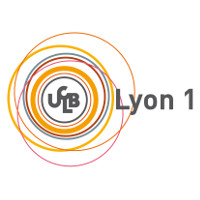Workshop on Graph Compression and Compact Representations
Paris, September 9-10 2019
The emergence of services and applications, such as social networks, World Wide Web, semantic web with knowledge graphs and RDF, genome and scientific databases, etc., projects to the frontend graph structured data as a precious tool to organise data but with new perspectives and challenges mainly related to handling massive data. In fact, the volume of data increases to such an extent that even polynomial solutions are no longer sufficient. Distributed and parallel frameworks, which are effective approaches to deal with big data, are not necessarily suitable for big graph computations mainly because of the structure of graph datasets and the iterative nature of their algorithms.
In this context, graph compression provides another point of view from which we can deal with this issue. It consists to produce small and simple representations of graphs on which we can undertake complex graph operations and verify or estimate complex graph properties.
Several research domains and applications rely on the computation of such summaries and compact representations: graph learning, graph indexing and querying, graph analysis and visualization, etc. This explains why graph summarizing is gaining importance. However, this task is complex and relies on a deep knowledge of graphs, their properties and their applications.
The objective of this workshop is to supply a forum where researchers from these various domains related to graph data can meet researchers from graph theory in order to exchange and work together.
Among the workshop’s objectives, we want to give an overview of the current state of art on graph summarizing methods and their applications. The workshop will also hold tutorials on related issues.
Topics include, but are not limited to:
- Graph compression
- Graph sampling
- Graph regularities and limits
- Graph embedding for graph representation learning
- Graph indexing
- Graph operations on summaries
- Graph property testing







